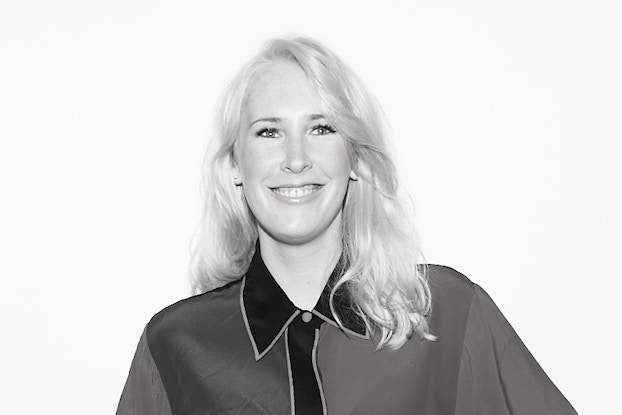
Why it matters:
- Forecasters see 2023 as an opportunity for brands to think out of the box when it comes to both physical and digital experiences. Novelty for the sake of novelty will not be enough to impress the post-COVID consumer.
- Consumers are looking for new ways to connect with brands and with one another, relying on social media as an important source of both community and customer convenience.
- Sustainability is no longer a trend – instead, it is has become a perennial force driving consumer and brands’ go-to-market behavior. Going forward, the onus will increasingly be on brands of all sizes to do the work behind the scenes to ensure they are delivering on what are now table stakes to the average consumer.
In an unpredictable world, expert trend forecasters and futurists are the next best thing to a crystal ball. As we kick off 2023, CO— spoke to some of the industry’s experts to identify five key trends that are set to drive business in the new year.
Key callouts include the evolution of the experience economy, the rise of social media as search engine, and the expansion of wellness culture to include mental health and hygiene.
Consumers are upping their expectations when it comes to experiences both ‘IRL and URL’
Last year, trend forecasters, journalists, and tech companies were focused on the emergence of the metaverse and the potential impact it might have on consumer experience. This year, experts predict that while the metaverse may indeed continue to develop as predicted, consumer attention will be focused on more tangible, close-to-home experiences.

“The effects of having awe-inspiring experiences can be quite profound,” said Sarah Owen, Co-founder and Global Futures Director at think tank Soon Futures. She recommends brands invest in creativity as much as possible to maximize customer enjoyment.
“In 2023 and beyond, designing for moments of awe will captivate young people on multiple levels, both IRL and URL. Look at ways you can weave awe into your experiences, products, and services without overdoing it. This strategy also acts as an antidote to our increasingly screen-heavy lives,” Owen added.
“I think there's a real appetite for a return to live, in-person, and social experiences,” said Trend, Strategy and Innovation Consultant Scott Lachut. “Despite the continuing challenges posed by COVID and other health scares, people appear to be ‘over it,’ both in terms of lockdown mentality and digital-first lifestyles. With respect to creating experiences, I think small, intimate, and curated versus mass is the best approach.”
The social media landscape is shifting, creating new opportunities to reach new customers
Users are not coming to social platforms just to share personal content and build their own brand, but to find and share knowledge the way they might have previously utilized search engines like Google.

Audiences cite the quick-hit nature and engaging quality of videos, for one, “to be more convenient and compelling than simply reading reviews or scrolling through static images,” said Lachut. “These searches not only impact purchase intent online but are also bleeding into the real world with the ability to influence in-the-moment [buying] decisions.”
“Major players are working on improving content search on their platforms, particularly around video, [so] brands need to improve their own discoverability,” Lachut added.
“In a more progressive experiment, TikTok has partnered with film studios to showcase full trailers and provides moviegoers with location-based showtimes and theater information to help drive ticket sales, pointing to a near-future use case for driving more utility [and practical convenience] for users.”
According to trend forecasting firm WGSN’s Top Trends for 2023, this year will also see social media reimagined in new ways. “These have the potential to improve mediation of user-generated content, and challenge the control of corporations, enabling brands to respond to and align with growing stakeholder expectations around trust, inclusion and participation,” Candice Medeiros, Strategist, WGSN Insight wrote in its annual report.
Consumers’ longing for belonging will drive discovery — and demand for — ‘hyper niche’ experiences in 2023
“Consumers are looking for support in forging and nurturing relationships, while also desiring a sense of connection and belonging,” said Soon Futures’ Sarah Owen. “From dating to mental wellbeing, the quality of our relationships reflects the quality of our lives.”
In the coming years, eco-labeling, which marks a product on an environmental-criteria basis, “will reflect consumer expectations much like the nutrition labeling we see today in supermarkets. We're seeing new innovations around transparency that are transforming the consumption landscape.”
Sarah Owen, Co-founder, Soon Futures
Lachut sees this search for belonging manifesting in an increasingly fragmented cultural landscape where consumers end up identifying with hyper-niche communities, each with their own set of norms and values, rather than a unifying dominant monoculture.
“With unfettered access and the ability to connect, individuals are free to dabble as they please until they find what they're after, which can change on a moment-by-moment basis,” Lachut explained. “This splits their time, attention, and loyalty to any one thing, making broad categorizations and demographics an impossible task.”
“In the face of this, brands need to be willing to dig in to truly understand what matters to their customers, participate in culture and conversation, and diversify how and where they're engaging with them.”
Owen recommends brands consider options like replacing business travel with team retreats and getaways, or designing community spaces that enable people to work, play, shop, and eat together, she said.
[Read: Shutterfly, Lands’ End, and Fernish Turn Pandemic-Era Homebodies Into a Business Opportunity]
Wellness culture will embrace ‘emotional hygiene’
Rising stress levels, particularly among younger consumers, have helped push conversations about mental health to the forefront of health- and wellness-related businesses.

“The issue is attracting mainstream awareness, culminating in a more open and vulnerable society where mental health is becoming increasingly addressed and normalized,” Owen said. “In 2023 and beyond, emotion regulation and management will become a standard daily practice, a normal matter of hygiene.”
“New products and services are emerging to support people in monitoring their emotions,” she added. Owen cites examples including Thyself, a “browser extension that helps people master their mental health,” and Peak, a nootropic [cognitive function enhancing] social drink, as two companies that are already “catering to a new holistically minded wellness consumer.”
“Amid a culture impacted by mental health concerns, gaming will increasingly become a source for healing into 2023,” Cassandra Napoli, Senior Strategist for WGSN Insight has predicted. “This trend is also starting to influence product design and development for hardware, gaming accessories and gaming environments.” Napoli highlights games including MIT Media Lab’s Paradise Island, which rewards real-life wellness activities with in-game benefits to encourage repeat behavior.
Conscious consumption continues to evolve, rewarding businesses that show a commitment to sustainable innovation
This year, trend forecasters predict we will see more brands take on the onus of responsibility, evolving their messaging to meet heightened consumer expectations around social responsibility and business transparency.

“Based on the challenges of the past few years, I think there's overwhelming fatigue on the part of consumers toward 'being responsible,'” Lachut said. Consumers still care about the impact of social implications of their purchasing decisions, “but the idea that they need to be the ones to be smart about what they buy, who they buy it from, how they dispose of it, etc. is losing ground, at least in the short term. The idea of a being sustainable business in 2023 shouldn't be a question but rather a defining characteristic of all businesses.”
Owen seconded the sentiment. “As young people increasingly aim to measure and mitigate their environmental footprint, they expect brands and companies to support them on the journey,” she said. In the coming years, eco-labeling, which marks a product on an environmental-criteria basis, “will reflect consumer expectations much like the nutrition labeling we see today in supermarkets. We're seeing new innovations around transparency that are transforming the consumption landscape.”
Soon Futures and WGSN’s 2023 trend report both highlighted climate tech as a key area to watch for brands across categories.
“Businesses that focus on building for permanence and not just performance will surely succeed in the future,” Owen said, recommending that brands, looking to capture the attention of tomorrow’s sustainably minded consumers, should “monitor new climate tech innovations and [not] be afraid to innovate for the sake of experimenting while you work toward a more holistic, circular model.”
CO— aims to bring you inspiration from leading respected experts. However, before making any business decision, you should consult a professional who can advise you based on your individual situation.
CO—is committed to helping you start, run and grow your small business. Learn more about the benefits of small business membership in the U.S. Chamber of Commerce, here.








